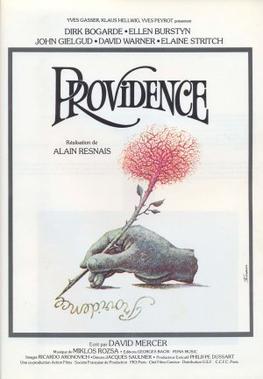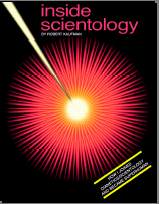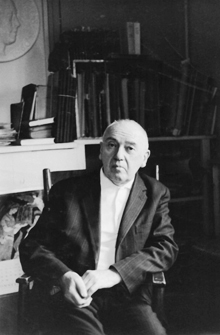
William Seward Burroughs II was an American writer and visual artist. He is widely considered a primary figure of the Beat Generation and a major postmodern author who influenced popular culture and literature. Burroughs wrote eighteen novels and novellas, six collections of short stories and four collections of essays, and five books have been published of his interviews and correspondences; he was initially briefly known by the pen name William Lee. He also collaborated on projects and recordings with numerous performers and musicians, made many appearances in films, and created and exhibited thousands of visual artworks, including his celebrated "shotgun art".

Daniel Robert Odier, is a Zen master, Chan master, writer, poet, screenwriter and essayist, specialist in Kashmir Shaivism. Praised by Anaïs Nin as "an outstanding writer and a dazzling poet," he is also a spiritual teacher of Eastern religious traditions, especially Tantra.

Henri Lefebvre was a French Marxist philosopher and sociologist, best known for pioneering the critique of everyday life, for introducing the concepts of the right to the city and the production of social space, and for his work on dialectical materialism, alienation, and criticism of Stalinism, existentialism, and structuralism. In his prolific career, Lefebvre wrote more than sixty books and three hundred articles. He founded or took part in the founding of several intellectual and academic journals such as Philosophies, La Revue Marxiste, Arguments, Socialisme ou Barbarie, and Espaces et Sociétés.

Viking Press is an American publishing company owned by Penguin Random House. It was founded in New York City on March 1, 1925, by Harold K. Guinzburg and George S. Oppenheimer and then acquired by the Penguin Group in 1975.

Junkie: Confessions of an Unredeemed Drug Addict, or Junky, is a 1953 novel by American Beat generation writer William S. Burroughs. The book follows "William Lee" as he struggles with his addiction to morphine and heroin. Burroughs based the story on his own experiences with drugs, and he published it under the pen name William Lee. Some critics view the character William Lee as simply Burroughs himself; in this reading, Junkie is a largely-autobiographical memoir. Others view Lee as a fictional character based on the author.

Queer is an early short novel by William S. Burroughs. It is partially a sequel to his earlier novel, Junkie, which ends with the stated ambition of finding a drug called yage. Queer, although not devoted to that quest, does include a trip to Latin America looking for the substance.
Grove Press is an American publishing imprint that was founded in 1947. Imprints include: Black Cat, Evergreen, Venus Library, and Zebra. Barney Rosset purchased the company in 1951 and turned it into an alternative book press in the United States. He partnered with Richard Seaver to bring French literature to the United States. The Atlantic Monthly Press, under the aegis of its publisher, Morgan Entrekin, merged with Grove Press in 1993. Grove later became an imprint of the publisher Grove/Atlantic, Inc.

And the Hippos Were Boiled in Their Tanks is a novel by Jack Kerouac and William S. Burroughs. It was written in 1945, a full decade before the two authors became famous as leading figures of the Beat Generation, and remained unpublished in complete form until 2008.

Providence is a 1977 French/Swiss film directed by Alain Resnais from a screenplay by David Mercer. It explores the processes of creativity through a portrayal of an ageing novelist, played by John Gielgud, who imagines scenes for his latest novel which draw upon his past and his relationships with members of his family. The film won the 1978 César Award for Best Film.

Ali's Smile: Naked Scientology is a collection of essays and a short story by American Beat writer William S. Burroughs (1914–1997). First published in 1971 as the short story "Ali's Smile", the book eventually contained a group of previously published newspaper articles as well, all of which address Scientology. Burroughs had been interested in Scientology throughout the 1960s, believing that its methods might help combat a controlling society. He joined the Church of Scientology later in the decade. However, he became disenchanted with the authoritarian nature of the organization. In 1970 Burroughs had published a "considered statement" on Scientology's methods because he felt they were significant enough to warrant commentary. These pieces were later gathered together into Ali's Smile: Naked Scientology, which religious studies scholar Hugh B. Urban describes as a "nonscholarly popular exposé of Scientology". Burroughs's texts argue that while some of Scientology's therapies are worthwhile, the dogmatic nature of the group and its secrecy are harmful.

The Electronic Revolution is an essay collection by William S. Burroughs that was first published in 1970 by Expanded Media Editions in West Germany. A second edition, published in 1971 in Cambridge, England, contained additional French translation by Henri Chopin.

Inside Scientology: How I Joined Scientology and Became Superhuman is a 1972 book by Robert Kaufman, in which the author takes a critical look at the Church of Scientology. It was first published in 1972 by Olympia Press. The book was the first to disclose secret Scientology materials. It was also published in 1972 in German, and was the first extensive critical report on Scientology in German.
This is a bibliography of the works of William S. Burroughs.

Jean Grenier was a French philosopher and writer. He taught for a time in Algiers, where he became a significant influence on the young Albert Camus.

Transcendence: Healing and Transformation Through Transcendental Meditation is a book written by psychiatrist and researcher Norman E. Rosenthal, published in 2011 by the Tarcher imprint of the Penguin Group. It presents the author's personal experiences and professional views on Transcendental Meditation research, as well as interviews with celebrity practitioners. The book contains a foreword by Mehmet Oz and four main sections entitled: "Transcendence", "Healing", "Transformation", and "Harmony."

Sisterhood Is Global: The International Women's Movement Anthology is a 1984 anthology of feminist writings edited by Robin Morgan, published by Anchor Press/Doubleday. It is the follow-up to Sisterhood Is Powerful: An Anthology of Writings from the Women's Liberation Movement (1970). After Sisterhood Is Global came its follow-up, Sisterhood Is Forever: The Women's Anthology for a New Millennium (2003).
In chaos magic, playback is a form of magical practice developed by William S. Burroughs, primarily as a way of placing curses on people or places. Burroughs was a part of the chaos magic movement, and this technique – along with others such as the cut-up technique – were further developed and commented on by later chaos magicians such as Genesis P-Orridge, Phil Hine and Dave Lee.

The Institut Suisse des Sciences Noétiques or ISSNOE is an established public utility nonprofit foundation dedicated to the scientific and comparative study of consciousness. The institute's research focuses on altered states of consciousness (ASC), like near-death experiences (NDEs), extrasensory perceptions (ESPs), and out-of-body experiences (OBEs).
Catherine Simon is an American portrait photographer and writer. She is known for her photographs of influential musicians, artists, and writers, including The Clash, Patti Smith, Madonna, Andy Warhol, and William S. Burroughs. One of her photographs of Bob Marley was used on the front cover of his 1978 album, Kaya.















